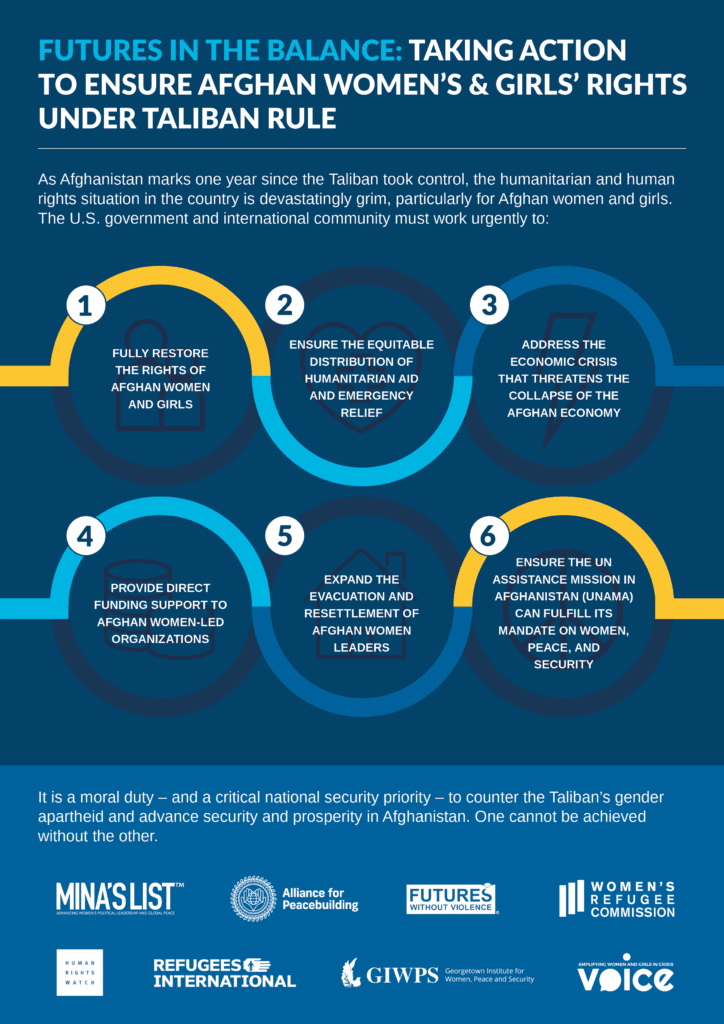
On the one year anniversary of Taliban’s rule in Afghanistan, the humanitarian crisis is in dire straits and the future looks increasingly grim for Afghan women and girls. The decades of progress toward development and gender equality have given way to food insecurity, economic crisis, and human rights abuses targeting women and girls. With half of Afghanistan’s population under imminent threat of being erased, again, and a nation on the brink of humanitarian collapse, the international community, with the US leadership, must respond with deliberate urgency.
In a new policy brief, Futures Without Violence, along with the Alliance for Peacebuilding, the Georgetown Institute for Women, Peace, and Security, Human Rights Watch, Mina’s List, Refugees International, VOICE, and the Women’s Refugee Commission, have come together to draft this brief and urge the following actions:
Recommendations:
- Full restoration of women and girl’s rights, including their right to education, employment, movement, participation in public life, and freedom from violence;
- Accountability for Afghan women’s rights as part of diplomatic engagement with the Taliban;
- Equitable and non-discriminatory distribution of humanitarian aid, including ensuring that relief services reach Afghan women and girls;
- Urgently addressing the economic crisis that threatens the collapse of the Afghan economy;
- Direct and flexible funding to Afghan women’s rights organizations and Afghan women leaders to continue critical functions;
- Ensure the UN Assistance Mission in Afghanistan (UNAMA) has the leadership and political support to implement the gender components of its mandate;
- Expansion of evacuation and resettlement for Afghan women human rights defenders and other at-risk or marginalized groups, such as Hazara women and LGBTI individuals.
Read our full recommendations in the Futures In the Balance Brief here.




